- Home
- Simon Winchester
Outposts Page 7
Outposts Read online
Page 7
When dawn came up, and the lights went off, so the loom of the colony vanished. But the beacon kept sounding, and by breakfast-time I could pick up a radio signal which was unmistakably American. It was Sunday morning. ‘Hi everybody!’ said the voice, crackling and fading as we dipped into troughs between the swells, ‘Hi! This is Reverend Harry of the God Squad wishing you-all a very Happy Sunday!’
And Reverend Harry, with his Oklahoma accent, his fervour and his enthusiasm, went on to catalogue the miseries and pitfalls of modern service life, and how best to avoid them. Only snatches of his sermon filtered across to us. ‘Let’s all pray for Marion, of Waxahatchie. She’s sick—and I don’t mean no cold or headache, folks. I mean major-league misery.’ ‘And now folks, don’ any of you get into drugs, d’you hear? ’Cause you drug-users are gonna die—no doubt about it. And when you die, well, man—that’s for a long, long time…’
And just in case we had any doubts, the station broadcast its identification, over and over again. ‘Yessir, this is Radio Fourteen-Eighty-Five—the American Forces Radio and Television Service, Diego Garcia, in the big wide wastes of the good ol’ Indian Ocean.’
We had gone below for breakfast, leaving the boat to steer herself. The water rumbled and chuckled under the hull—we were making good progress, and we had been doing so for about an hour when I decided to go above, and check the horizon. I very nearly fell overboard. The sea, which had been quite empty when I went below, was now seething with ships. Two long container ships were bearing down on us from the east; there was a strangely shaped vessel, painted a brilliant white, about five miles ahead; two destroyers sailed away northwards; and heading on a direct collision course for us, and no more than a mile away, were the black, weed-covered bows of a massive ocean-going tug. A dozen men clustered around the wheelhouse, all apparently staring in our direction.
She bucked and reared in the swell, passed on our starboard quarter, and made a wide turn behind us and came alongside. She was called the Robert W. and was registered in Seattle. I imagined she was on charter to the Navy as the base perimeter patrol ship, and that this was as far as we were likely to get. I cursed silently. Three weeks at sea, to be turned away within sight of the place. Bloody bad luck. Ruth looked glum, too; I suspected she thought the same.
‘Where you from?’ barked a voice from the wheelhouse. We yelled our reply, and saw the entire audience react with stunned, but friendly, disbelief. These were big-ship sailors, and our little schooner must have looked too tiny to accomplish a passage across the average lake, let alone an ocean as wide and difficult as this. ‘For Chrissake! All that way in that tub!’ exclaimed the skipper. ‘You wanna beer?’ And almost as he said this, two cans of Olympia Lite Beer whistled across the green and heaving gap, each from a different member of his crew. I stopped mine, and Ruth caught hers, the tug erupted in a burst of wild applause, and we began a fifty-decibel conversation as both boats struggled to keep on course, and avoid a collision.
No, they were not on patrol; they were simply taking a group of sailors on a Sunday morning fishing expedition. As far as they were concerned we could go and crawl over Diego Garcia about as much as we wanted. ‘It’s not us who give the trouble,’ the skipper explained, with a sympathetic grin. ‘It’s the bloody limeys here. They run the place, and they’re mean as hell. But you want to get in to Diego? Well, we got a plan.’ And he went on to tell us to fake a mild emergency—‘appendicitis, engine trouble, something like that—in fact, why not throw out all your water? They’re sure to let you in if they think you’re out.’
We had taken on six jerrycans of fresh water at Boddam—most of it not so fresh, in fact, and alive with wriggling red worms—and had plenty of spare in the bilge tanks. So we opened all the deck containers and dribbled the water out into the sea, to the ironic cheers of the tugboat crew. When the last one was empty, the skipper disappeared, and could be heard chattering on the radio. Finally he appeared again and gave a thumbs-up. ‘They’ll let you in to fill up—so come on in. Follow us!’ And he turned south, and roared off at ten knots, the skipper obviously delighted with the success of his small deception. We fell in beside his wake, let our sails fill out, cranked up our tiny Lister diesel engine to give us the extra knot or two, and made passage for Diego Garcia.
It came into view after only a few minutes, though the first sight was not of a dusting of green palm trees, but of a single white tower, and a cluster of ships’ masts. The tower was marked on the chart—‘Wht. Twr. Conspic.’—and as we came closer, and began to see the lines of palms heeling over in the wind, and the upper-works of a veritable flotilla of vessels, we could see it was a water tank, and had words stencilled on the side: ‘Welcome,’ it said, as we expected, ‘to the Footprint of Freedom’.
The reef entrance was marked by lights and buoys, and we passed two islands where there had been a leper colony a century ago. Inside, the channel was deep and wide—no danger of running aground on a coral-head, as we had with such ignominy up in Boddam. The channel had first been widened a hundred years before, when the Orient Steam Navigation Company decided to abandon Aden as a coaling station, and make Diego Garcia the main refuelling stop between the Red Sea and Cap Leeuwin.
Messrs. Lund and Company worked the coal bunker, employing forty Somalis and seventeen Europeans to operate the depot and its 15,000 tonnes of Welsh steam coal. It took about forty-eight hours to coal a liner, and the passengers were asked not to disembark, because of the ‘lack of facilities’ on the atoll. A Lund and Company official once reported great excitement among the native islanders when the liner Lusitania called; generally, however, coaling staff and copra-gatherers kept themselves apart, and there has never been any persuasive evidence of Somali blood in the Diego Garcian stock.
The Robert W. led us to a buoy in Eclipse Bay, just beneath the water tower and no more than a hundred yards from the shore. There was a satellite dish and cluster of domes and aerials and a café, with people sitting on a verandah out over the water. They waved and I thought I heard someone inviting us over for a beer.
The tug meanwhile had tied alongside, and the cook was busily passing over to Ruth a bewildering and wonderful assortment of food and drink. For the last two weeks it had been lentils and corned beef; now we had legs of frozen pork, fresh orange juice, beer, strawberries, tinned peaches, fresh pears…until suddenly the buzz of friendly American voices gave way to the stern and unmistakable accent of a British Government official. ‘Break away, please! Break away! Her Majesty’s Government orders. Break away!’
The two men, both in khaki shorts and shirts, with their epaulettes emblazoned with the letters ‘BIOT’, stepped off a power boat and on to the tug. The crew members took immediate fright: water pipes were disconnected, hawsers were undone, springs released, bowlines untied and the Robert W. and Sketty Belle began to drift apart. The two newcomers jumped nimbly aboard the yacht and signalled to the tug to move well away. Her skipper waved to us and grimaced at the back of the two, who were now arranging themselves, and opening their government-issue briefcases, in our main cabin.
Neither man smiled. One was named John Eddington, the other Jan Gover, and they had no interest in small talk. Passports were produced, forms were pulled from cases, and all the usual questions were asked—what firearms did we carry, did either of us suffer from malaria or measles, what duty-free alcohol was on board, were we carrying cocaine or marijuana. And then Mr Gover assumed an even more stern expression and asked my profession. ‘Representative,’ I said, since that was the word on my passport. ‘Of what?’ he asked. ‘Publishing,’ I replied, thinking that sufficiently anodyne. ‘Oh yes,’ Gover scowled. ‘Publishing newspapers, by any chance. You wouldn’t be a journalist, would you?’
The game was well and truly up. Yes, I said, I was. (‘He’s admitted it!’ Gover whispered into the microphone of his radio, as though, after grilling me for three days, with liberal use of the thumbscrews and the rubber truncheon, he had finally heard me tel
l him where the gold was hidden.) Then Mr Eddington, the senior man, intervened. He waved a piece of typing paper, and became more formal. ‘Last January, Mr Winchester, you wrote to the Foreign and Commonwealth Office, requesting permission to visit this territory.’ I nodded mutely. I had indeed written to the Commissioner, Nigel Wenban-Smith (who combined his somewhat less-than-onerous job with that of being head of the East African Department), and had received a polite, but firm refusal. Under the terms of the 1966 agreement with the United States, he said, no civilians, except those working for the Government, could travel to any of the islands. He promised to put my name on the list of applicants, but held out rather little hope.
‘Why,’ Mr Eddington thundered, clearly quite angry, ‘did you disregard the instructions of Her Majesty’s Government?’ I stifled a chuckle. It all seemed so very comical—this utterly serious conversation taking place in so tiny a cabin, piled high with frozen pigs’ legs and cartons of strawberries. I stuttered a reply. I had wanted to see if the Government’s assurances that only ‘rotating contract personnel’ lived on Diego Garcia were in fact true. I wanted to see if the graveyard still existed at Minni Minni, or if the wild horses from the islanders’ old stables still ran on the beaches by East Point, and if there were any remanent members of the clutches of Muscovy ducks and Buff Orpington chickens that some islander set free on moving day ten years before, and I wanted to see if the hibiscus still grew by the manager’s house, and if the pier still stood, from where the manager’s wife once watched ‘a giant ray, moving through the water like an animated army blanket’. I wanted to know, in short, whether our Government had been telling the truth when it took over the islands for the American forces to use, or whether the politicians had lied to the world, and dismissed the demands of the islanders like so much chaff in the wind.
All this cut no ice with Mr Eddington, and Mr Gover looked frankly contemptuous. ‘You’ll have to go,’ he said. ‘Right away.’
But Ruth had some shots left in her locker. No, she said, she was not prepared to go. As skipper of the vessel, she had a duty to see that neither it nor her crew were likely to be in any danger at sea. There were problems with the boat. The autopilot was not working. The stern gland on the propeller shaft was leaking, and needed to be repacked and tightened. The diesel tanks were almost empty. One of the sails was badly torn and needed patching. All this would take time, she said, and a brief sojourn in a British colony would be most convenient.
The officers left to seek instructions from the island Administrator, a Foreign Office man named John Topp. (The Administrator presides over surely one of the most curious assemblages of Imperial rulers ever—Naval Party NP 2002, with a lieutenant-commander, twenty sailors and six female cipher clerks; a magistrate and a doctor; and six Scotland Yard policemen, who are permanently occupied trying to investigate the innumerable cases of narcotics use among the 2,000 Americans who live on their side of the cyclone fence. This may be an American base; but British justice rules, and so the Foreign Office has to see that the island does not succumb to utter lawlessness.)
While we waited, we watched the vast panorama of the American war machine. Ahead, directly under the bow, was the runway—nearly three miles long (and being extended on stilts into mid-lagoon), and the best equipped between South Africa and Australia. There were six of the silver Lockheed spotter planes parked on the apron, and two more roared in as we watched; ten white-painted fighters, quite probably from a carrier lurking somewhere nearby, were clustered by the control tower; and at the far end, near the storage tanks and some ominous-looking mounds of earth, the gun-grey bulk of a B-52 bomber, all the way from California by way of Hawaii, the Philippines and Guam, and there to show the Middle East that America had the strategic ability to drop atom bombs, or launch cruise missiles, at a whim.
The base—and indeed all of the Indian Ocean, right up to Mombasa and Kuwait—comes under the command of the C-in-C Pacific, who is based in Honolulu. He remarked to me once that having a forward line as far away as the Persian Gulf, which his bombers took nearly a day to reach, was inconvenient, to say the least. If the Commander of US Forces in Germany wanted to know how it felt, the Admiral remarked, he should be based in St Louis, Missouri, and try to run a European war from there.
But the real impression of power came from the lagoon, and the gigantic assemblage of naval power and supplies. I could count seventeen ships riding at anchor. Thirteen were cargo vessels, stuffed to the gunwales with tanks and ammunition, fuel and water supplies, rockets and jeeps and armoured personnel carriers, and ready to sail at two hours’ notice. There was an atomic submarine, the USS Corpus Christi—a batch of crewmen were even now sailing by in their liberty boat, off to see the delights of the Rock and, presumably, to ferret out some of the eighty women assigned to the base; there was the submarine tender USS Proteus, which I had last seen in Holy Loch, in Scotland, and which was packed with every last item, from a nut to a nuclear warhead, that a cruising submariner could ever need; and there was the strange white-painted former assault ship, the USS LaSalle, now converted into a floating headquarters for the US Central Command, and in the bowels of which admirals and generals played ‘Games of Survivable War in the Mid-East Theater’, with the white paint keeping their electronic battle directors and intelligence decoders cool in the Indian Ocean sun.
But then Messrs. Eddington and Gover swept back in the Dunlin Express. Their faces were set. No, we could not stay. London had directed that we leave the Territory forthwith, and the Royal Navy would tow us out to sea if necessary. If we had any repairs we would have to do them at sea.
But we formally refused to go, and said quite plainly that we were within our rights, could claim Diego Garcia as a port of refuge under an international convention to which Britain and her colonies were signatories. Off roared the Dunlin Express once more; Mr Topp was consulted, London was telephoned, and back came the boat, with another one, the Montrose Express, in tow. Four khaki-shirted men stood in the background as their senior stood to make an announcement:
‘I, John Winston Eddington, Marshal of the Supreme Court of British Indian Ocean Territory, do hereby request and require you to remove yourselves and your vessel…’ And at this point I suddenly realised we weren’t playing games any more. We were going to lose—we could have the boat seized, enormous fines levied, possessions confiscated, charges brought under Secrets Acts. So, craven and briefly humiliated, I interrupted. We would go, of course, I said; but we were tired, the weather had been bad up north—could we perhaps stay until daybreak? There was some hurried consultation by radio, and John Eddington nodded his agreement. Till dawn, he said; no hard feelings—a drink in London one day perhaps? Only doing my job, y’know. And off the Expresses buzzed, leaving us bobbing in their wake, and then alone in the upper part of the lagoon, in a strange and quarantined kind of peace.
The nights on Diego Garcia are brilliant affairs. The ships are festooned with riding lights and deck lights and illuminations. The airstrip glows with sodium vapour lamps, and the satellite dishes scan the skies bathed in a soft white glow. Aerials wink red and white, strobe lamps flicker, the barrack blocks and the security fences are bright in the blue of the kliegs. Someone ordered that searchlights be directed at us, presumably to make sure we didn’t try to swim ashore; and throughout the night aircraft returning from patrol swept above us, colouring the water with their landing lamps. Kipling may have thought Calcutta was the city of dreadful night; this was the colony of perpetual day.
We didn’t wake at dawn, and by eight the Express boats were back, and people were yelling through megaphones at us, telling us to move. We took our time, and ate our breakfast while the patrol boats circled us, like sharks; finally we slipped the buoy lines at noon. As we hoisted the sails we turned south, into the lagoon, and sailed around the Corpus Christi, and under the bows of the Proteus and the LaSalle, while a party of Royal Navy men in a rubber boat escorted us to the lagoon mouth. They waved us out and turn
ed back to base; we felt the pleasant calm of the shallows give way to the slow swell of the ocean once more, and then the wind took hold, and a strong current, and we were swept away from Diego Garcia for good.
Three hours later I heard a plane above us, and saw the familiar shape and the flash of silver. I turned to see if I could spot the Wht. Twr. Conspic.—but the island had vanished below the horizon. That night the glow was easily visible, and lasted until just before dawn, but it was missing the next night out, and the skyline was uniformly dark. Only the radio told of the American presence—Radio Fourteen-Eighty-Five, blaring its advice on aerobic workshops and US Savings Bonds and drug abuse programmes until it, too, faded in a crackle and a hiss of static, and the island disappeared back into the ocean-bound anonymity it so keenly savours.
It still dismays me that so little anger has been generated inside Britain about the sad saga of the Chagos Islands. It might have been different, of course, had the Labour Government not been the one to initiate the tragedy. We tend to associate the Labour Party with the gentler principles of humanity and human dignity—it is a party that purports to stand for civil rights, self-determination, freedom from colonial tyranny, a slowing of the arms race. And yet it violated all of these precepts by its decisions over the Chagos Islands in 1965 and 1966, and by the actions its officers directed in the late 1960s and the early 1970s.
Had these things been done by a Tory administration, as one would perhaps have more easily accepted, the Roy Hattersleys and George Browns would no doubt have pilloried the decisions, condemned the Government for its barbaric cruelty and inhuman devotion to the arrogance of Empire. But, unhappily, it was these very politicians who directed the tragedy, and so are unable to criticise it in the political arena today. There is a time, of course, when expediency takes precedence over principle; and when that happens, as it clearly did over the formation of BIOT and the expulsion of the native islanders, there is a general understanding that not too much will be made of it all, and people will gradually forget.

 The Surgeon of Crowthorne
The Surgeon of Crowthorne Korea: A Walk Through the Land of Miracles
Korea: A Walk Through the Land of Miracles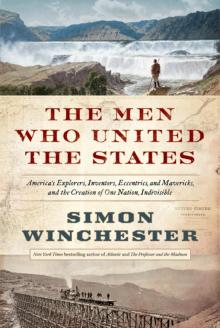 The Men Who United the States: America's Explorers
The Men Who United the States: America's Explorers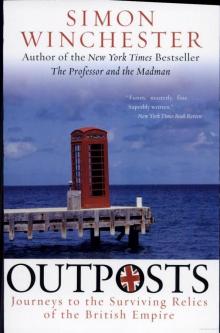 Outposts: Journeys to the Surviving Relics of the British Empire
Outposts: Journeys to the Surviving Relics of the British Empire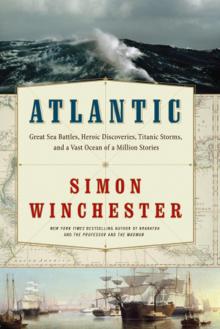 Atlantic: Great Sea Battles, Heroic Discoveries, Titanic Storms
Atlantic: Great Sea Battles, Heroic Discoveries, Titanic Storms The Professor and the Madman: A Tale of Murder, Insanity
The Professor and the Madman: A Tale of Murder, Insanity A Crack in the Edge of the World
A Crack in the Edge of the World The Perfectionists: How Precision Engineers Created the Modern World
The Perfectionists: How Precision Engineers Created the Modern World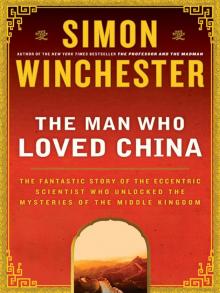 The Man Who Loved China: The Fantastic Story of the Eccentric Scientist
The Man Who Loved China: The Fantastic Story of the Eccentric Scientist The River at the Center of the World: A Journey Up the Yangtze
The River at the Center of the World: A Journey Up the Yangtze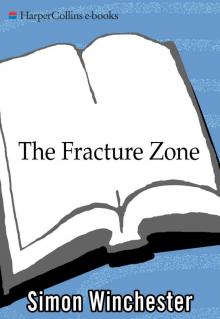 The Fracture Zone: My Return to the Balkans
The Fracture Zone: My Return to the Balkans The Map That Changed the World
The Map That Changed the World Krakatoa: The Day the World Exploded
Krakatoa: The Day the World Exploded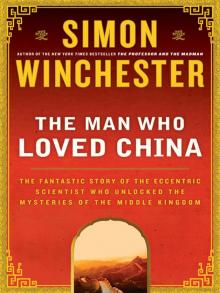 The Man Who Loved China
The Man Who Loved China The River at the Centre of the World
The River at the Centre of the World Bomb, Book and Compass
Bomb, Book and Compass The Perfectionists
The Perfectionists The Meaning of Everything
The Meaning of Everything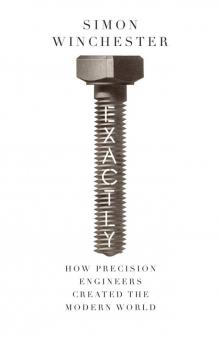 Exactly
Exactly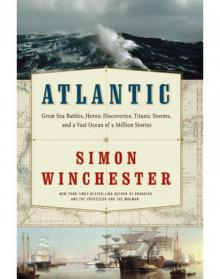 Atlantic
Atlantic Korea
Korea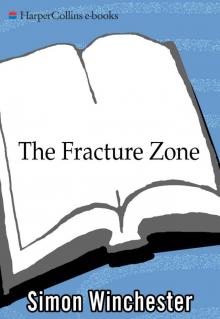 The Fracture Zone
The Fracture Zone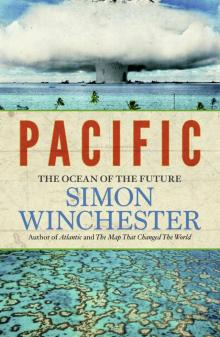 Pacific
Pacific Krakatoa
Krakatoa The Professor and the Madman
The Professor and the Madman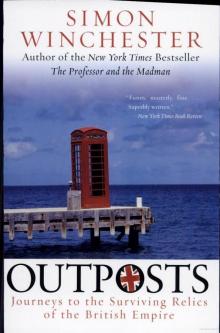 Outposts
Outposts